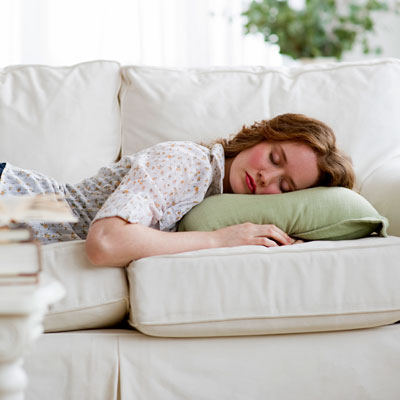
Image: Katherine Squier via Flickr – Creative Commons License
As children, many of us were designated early bed-times by our parents. For the most part, it was easy for us at that age to go to bed accordingly, but in the process to becoming adolescents, we find ourselves struggling to abide by these schedules and likely ended up abandoning them. As a result, we also struggle with waking up early and performing optimally for those early morning classes. While some adults may blame that on a student’s lack of discipline, multiple studies have shown that biological factors are at play, and why shifting our school schedules can be beneficial for us.
As most of us know, sleep is crucial for children, but what is often underestimated is the amount of sleep required for optimal functioning in adolescents as well. Most professionals in the field, including Mary A. Carskadon, Ph.D., director of Sleep Research at Bradley Hospital, agree that adolescents and young adults require the same amount of sleep that children do, which ranges from about 8.5 to 9.25 hours a night. The problem, however, is that due to their increased responsibilities, school workload, and extra-curricular activities, adolescents rarely are able to obtain this amount on a regular basis. In her article, “When Worlds Collide: Adolescent Need for Sleep Versus Societal Demands,” Dr. Carskadon outlines the societal demands that conflict with adolescents’ biological clock for optimal sleep times, including early school starting times competing with our circadian rhythms.

In this short video, Dr. Katrena Lacey discusses the main points of how teenagers’ sleep habits differ from that of children and adults. All the factors listed by Dr. Lacey contribute to the problem with adolescents’ lack of sleep.
One research study attempted to solve the issue regarding adolescent sleep deprivation. The recent study was performed by psychologist and sleep expert, Julie Boergers, Ph.D., on 557 adolescents at a coeducational residential school by shifting their school’s starting time from 8:00 a.m. to 8:25 a.m. These students filled out the School Sleep Habits Survey (SSHS), a widely used survey in the US and other countries, at three equivalent time points in their school terms to compare the effects on their sleep-wake behaviours, functioning, school participation, physical and psychological health, and even caffeine use.
What they found through statistical analysis of the SSHS was an increase in sleep duration by 29 minutes, which makes logical sense due to the later start-time for school. The significant statistical finding, however, is an increased number of students obtaining over eight hours of sleep per night (from 18% to 44% of students). Overall, these students noted reduced daytime sleepiness, feelings of depression, and caffeine consumption.
Although this study showed no substantial improvement in grades and academic performance, it puts a strong case forward for shifting our school schedules just about half an hour later to reap the benefits of a good night’s sleep. For those of us who feel that sleeping earlier is nearly impossible, this study gives them good reason to start school later, mitigating sleep deprivation that seems to be such a big problem in our college lifestyle.


